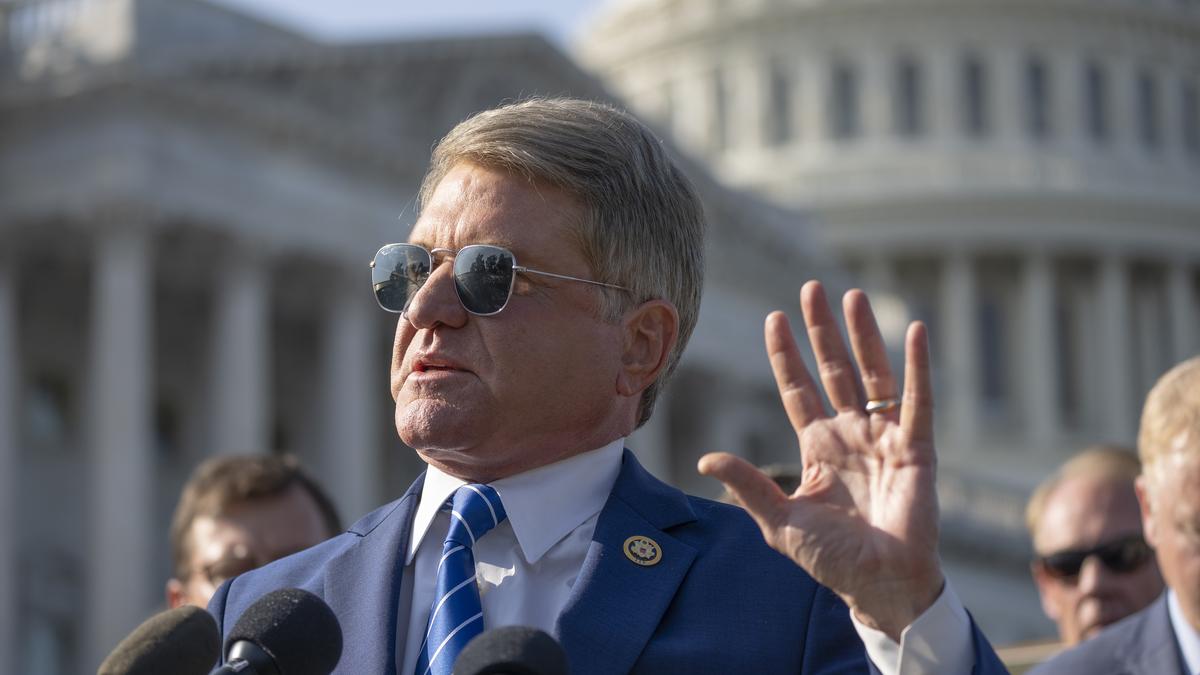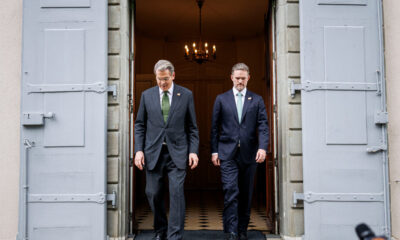U.S. House Republicans on Sunday issued a scathing report on their investigation into the country’s withdrawal from Afghanistan, blaming the disastrous end of America’s longest war on President Joe Biden’s administration and minimising the role of former President Donald Trump, who had signed the withdrawal deal with the Taliban.
The partisan review lays out the final months of military and civilian failures, following Mr. Trump’s February 2020 withdrawal deal, that allowed America’s enemy fundamentalist Taliban to sweep through and conquer all of the country even before the last U.S. officials flew out on August 30, 2021. The chaotic exit left behind many American citizens, Afghan battlefield allies, women activists and others at risk from the Taliban.
But House Republicans’ report breaks little new ground as the withdrawal has been exhaustively litigated through several independent reviews. Previous investigations and analyses have pointed to a systemic failure spanning the last four presidential administrations and concluded that Mr. Biden and Mr. Trump share the heaviest blame.

Texas Republican Rep. Michael McCaul, who led the investigation as chairperson of the House Foreign Affairs Committee, said the GOP review reveals that the Biden administration “had the information and opportunity to take necessary steps to plan for the inevitable collapse of the Afghan government, so we could safely evacuate U.S. personnel, American citizens, green card holders, and our brave Afghan allies.”
“At each step of the way, however, the administration picked optics over security,” he said in a statement.
Sharon Yang, a White House spokesperson, said the Republican report was based on “cherry-picked facts, inaccurate characterisations, and preexisting biases.”
“Because of the bad deal former President Trump cut with the Taliban to get out of Afghanistan by May of 2021, President Biden inherited an untenable position,” either ramp up the U.S. war against a strengthened Taliban, or end it, Ms. Yang said in a statement.
House Democrats in a statement said the report by their Republican colleagues ignored facts about Mr. Trump’s role.
A 2023 report by a U.S. government watchdog in Afghanistan singled out Mr. Trump’s February 2020 deal with the Taliban agreeing to withdraw all American forces and military contractors by the spring of the next year, and both Mr. Trump’s and Mr. Biden’s determination to keep pulling out U.S. forces despite the Taliban breaking key commitments in the withdrawal deal.
The more than 18-month investigation by Republicans zeroed in on the months leading up to the removal of U.S. troops, saying that Mr. Biden and his administration undermined high-ranking officials and ignored warnings as the Taliban seized key cities far faster than most U.S. officials had expected or prepared for.
The withdrawal ended a nearly two-decade occupation by U.S. and allied forces intended to rout out the al-Qaeda militants responsible for the September 11, 2001, attacks on the U.S. The Taliban had allowed al-Qaeda’s leader, Osama bin Laden, to shelter in Afghanistan. Committee staffers noted reports since the U.S. withdrawal of the group rebuilding in Afghanistan, such as a UN report of up to eight al-Qaeda training camps there.
The Taliban overthrew an Afghan government and military that the U.S. had spent nearly 20 years and trillions of dollars building.
With Mr. Biden no longer running for reelection, Mr. Trump and his GOP allies have tried to elevate the withdrawal as a campaign issue against Vice President Kamala Harris, who is now Mr. Trump’s Democratic opponent in the presidential race.
The report by House Republican cites Ms. Harris’s overall responsibility as an adviser to Mr. Biden, but does not point to specific counsel or action by Ms. Harris that contributed to the many failures.
Signs ignored
Earlier reviews have said Mr. Trump also carried out his early steps of the withdrawal deal, cutting the U.S. troop presence from about 13,000 to an eventual 2,500 despite early Taliban noncompliance with some parts of the deal, and despite the Taliban escalating attacks on Afghan forces.
The House report faults a longtime U.S. diplomat for Afghanistan, former Ambassador Zalmay Khalilzad, not Mr. Trump, for Trump administration actions in its negotiations with the Taliban. The new report says that Mr. Trump was following recommendations of American military leaders in making sharp cuts in U.S. troop numbers in Afghanistan after the signing.
The report also goes into the vulnerability of U.S. embassy staff in Kabul as the Biden administration planned its exit. Republicans claim there was a “dogmatic insistence” by the Biden administration to maintain a large diplomatic footprint despite concerns about the lack of security afforded to personnel once U.S. forces left.
Gen. Frank McKenzie, one of the two U.S. Generals who oversaw the evacuation, told lawmakers that the administration’s insistence at keeping the embassy fully operational was the “fatal flaw that created what happened in August,” according to the report.
The report claims that State Department officials went as far as watering down or “even completely rewriting reports” from heads of diplomatic security and the Department of Defense that had warned of the threats to U.S. personnel.
“We were still in planning” when Kabul fell, Carol Perez, the State Department’s acting undersecretary for management at the time of the withdrawal, testified to the committee.
Published – September 10, 2024 12:35 pm IST







































